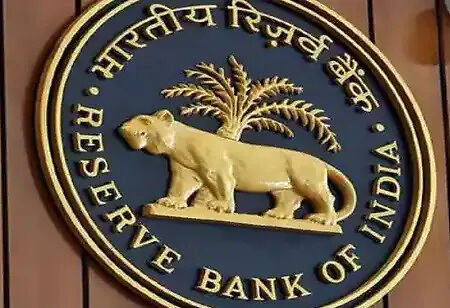
Why Does RBI Say Privatizing PSBs is More Bad than Good?

 The divisive topic of bank privatization has once again come up with the Union government, which is eager to introduce an amendment to clear the way for the government to completely withdraw from the public sector banks (PSBs) that are being put up for sale.
The divisive topic of bank privatization has once again come up with the Union government, which is eager to introduce an amendment to clear the way for the government to completely withdraw from the public sector banks (PSBs) that are being put up for sale.
According to reports, the finance ministry and the Reserve Bank of India (RBI) are currently negotiating how to handle ownership and controlling stakes issues. When seen in the context of the Department of Investment and Public Asset Management holding road shows in the US to market IDBI Bank, these occurrences take on a bigger significance.
However, recently the RBI released a bulletin that draws a big-bang approach to the privatization of state-owned banks that may cause more harm than gain.
More Harm than Good
The bulletin examines the advantages and disadvantages of privatization and explains how an emerging economy like India might experience greater difficulties as a result of the privatization of banks.
Better financial inclusion, a better credit system, and improved PSB efficiency are some of the main factors cited by the RBI paper as evidence that PSBs can serve the nation better than private banks.
According to the bulletin, the government's gradual privatization strategy can ensure that the social goal of monetary transmission and financial inclusion is not compromised.
Numerous studies claim that PSBs (Public Sector Banks) have been essential in fostering financial investments in low-carbon sectors and driving the green transition in nations including Brazil, China, Germany, Japan, and the European Union.
According to the data, unlike private sector banks, public sector banks have integrated the desirable financial inclusion aims into their objective function, indicating that they are not solely driven by the profit maximization purpose.
These banks have recently seen an increase in market confidence. Despite criticism for having poor balance sheets, research indicates that they fared fairly well during the Covid-19 pandemic shock.
The recent massive merger of PSBs has led to sector consolidation, generating stronger, more resilient, and more competitive banks.
By 2020, there were only 12 PSBs when the government combined 10 nationalized banks into four sizable institutions. In 2017, there were 27 state-run lenders.
Punjab National Bank combined United Bank of India and Oriental Bank of Commerce, Canara Bank combined Syndicate Bank, Indian Bank combined Allahabad Bank, and Union Bank of India combined Andhra Bank and Corporation Bank.
Dena Bank and Vijaya Bank combined with Bank of Baroda in 2019 as the first three-way merger. Five associate banks of SBI and Bharatiya Mahila Bank had previously been amalgamated with the State Bank of India by the government.
It claimed that the creation of National Asset Reconstruction Company Limited (NARCL) would aid in removing the legacy load of bad loans from their balance sheets in terms of cleaning up non-performing assets (NPAs).
A different source of infrastructure funding will be made available by the recently established National Bank for Financing Infrastructure and Development (NABFiD), allaying PSBs' worries about the asset-liability mismatch.
Overall, it stated, these revisions are expected to contribute to further strengthening the PSBs.
But there are few Cons to Privatization
Private sector banks mostly target the higher strata and corporate giants in society, while public sector banks serve all facets of society. The poorer segments of society could suffer as a result, and the general public's faith in the government could be destroyed.
While private banks only opt to operate in urban regions where there is a strong likelihood of making a profit, public sector banks work to provide contemporary amenities even in unprofitable places.
Variable revenue may also be brought in by privatization. There could be panic and demonstrations all around the nation as a result.
Private sector banks constantly improve their offerings to stay abreast of the shifting market trends and transform their business models to draw in a wider clientele. This guarantees that the clients get the best possible service and have a hassle-free experience.
Bank privatization will also assist in lightening the load on the Indian government. This is due to the strict standards that private banks have for making loans and handling fraud. This guarantees that a bank won't sustain significant losses as a result of inadequate background checks or security.
Public banks struggle to operate independently because they are frequently intimidated for political reasons. With less government intervention, banks will be able to concentrate on their long-term objectives after privatization.
Most private sector banks are profitable when compared to PSUs, which suggests that privatization could aid in turning loss-making companies into successful ones.
Although privatization would appear to be the answer to every issue the banking industry is now facing, this is hardly the case. In order for the country to advance, it is crucial to make sure that modern financial infrastructure is available everywhere. However, in light of these findings, privatizing these banks all at once could be detrimental rather than beneficial. The government has already made known that it plans to sell off two banks.